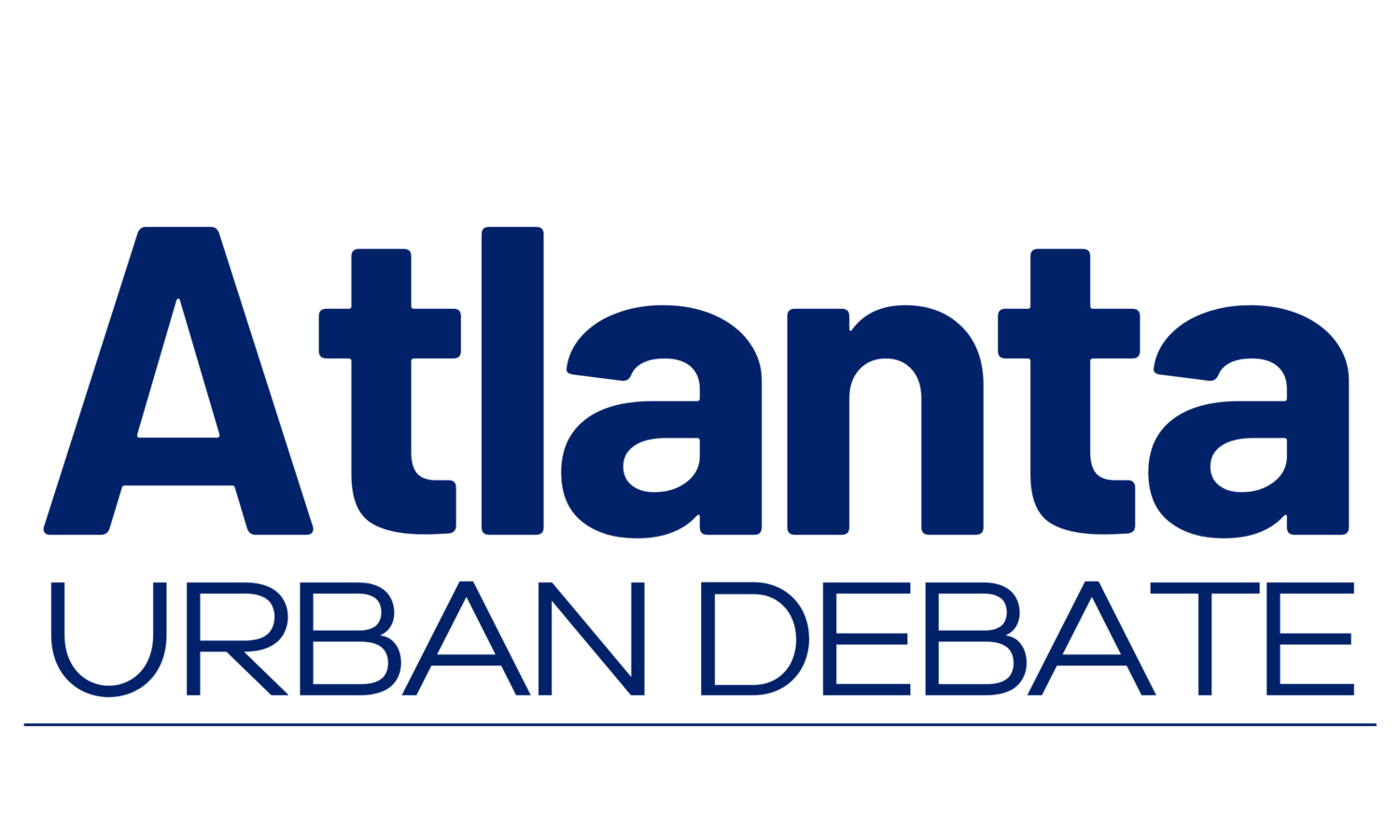The Atlanta Urban Debate League is committed to providing excellent debate education programs, services, and opportunities to diverse students, educators, and members of the community!
Beginner High School Curriculum Guide
Debate Glossary
Affirmative–the side that supports the resolution by arguing for the affirmative plan and case.
Cross-Examination–the part of the debate where you can ask questions to the other team in order to set up arguments you want to make later in the round.
Extensions–taking an argument you or your partner made earlier in the round and re-explaining later in the round, considering what your opponents have said about it. (If they’ve said nothing, they’ve dropped it! You should explain to the judge that this means you’ve won that part of the argument because they’ve failed to respond).
Flowing–the note-taking process during a debate round. You should flow every speech in a round (except the ones you’re giving!) To maximize the use of each of your flow sheets, flow the affirmative case on one sheet (the 1AC and its advantages, and the following negative answers to each of these) and the negative’s off-case arguments on another (disadvantages to the affirmative plan).
Negative Block–The negative’s two back-to-back speeches, the 2NC and the 1NR.
Negative–the side that opposes the resolution by arguing against the affirmative plan and case.
Off-case–arguments that are read off the affirmative case (in novice, that’s just disadvantages) because they generate offense for the negative outside of the affirmative case. Each off-case argument should be flowed on its own piece of paper.
On-case–arguments that are read on the affirmative case (advantages, solvency, inherency, plan) because they generate offensive for the affirmative. All on-case arguments should be flowed on the same paper as the 1AC.
Prep Time–the time during the debate round designated for you to prepare the arguments that you’re going to make in your speeches that follow.
Road Map–a list of the parts of the debate that you’ll talk about. You should read it aloud before your speech.
Sign posting–when you signal to the judge and the other team what parts of the debate you’ll be talking about by saying “now onto [this argument].”
Status Quo–a Latin term that means the existing state of affairs, or how things are today.
